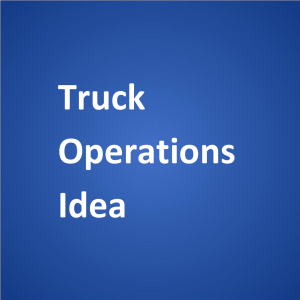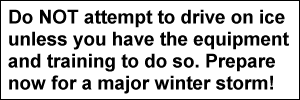By: cd,
 i’m spitting mad! yesterday, i was told to move some trailers between two places. when i was done, i was told neither my time nor mileage would be paid! do i have to give free labor?
i’m spitting mad! yesterday, i was told to move some trailers between two places. when i was done, i was told neither my time nor mileage would be paid! do i have to give free labor?
—–
Response from Vicki:
Hello, CD,
Thanks for your question about free labor as part of your truck operations. Mike and I totally empathize with you.
Many professional truck drivers spend time every day doing tasks they’re not paid for (like waiting in docks while freight is loaded or unloaded). It’s not right and this is part of the reason why there is a shortage of qualified professional truck drivers in the trucking industry.
Zeroing in on your specific question, though, you were not asked to “wait” for a load, but you were actually rendering a service. You were on the clock for your job, using your skills and putting your life and CDL on the line for this work just as you would in moving any other freight — including deadheading back to a terminal. What made this bit of work any different from any other work you’ve done for the company? From my perspective, there is no difference — that is, unless you allow it to be.
When Mike drove for his last irregular route trucking company, he was asked occasionally to do some local “grunt work” like moving some trailers. He asked for and always received “city pay” for this service. It was usually around $20, but it was enough to show him that his service was not being rendered as free labor.
What should you do about this? Talk with your supervisor. Ask why you should provide free labor. If the answer you receive is, “Because {someone in a higher position} says so,” then talk with the person in that higher position. Keep going up the ladder until you have the answer to this question:
“If you were in my shoes and were asked to do this service for free, would you?”
Wait for the answer. If the answer is “yes,” then ask:
“So, you’d be willing to do parts of your job here for free?”
If necessary, remind your supervisor that there are at least three classifications of labor:
* paid (given in exchange for payment);
* free (given voluntarily without expectation of payment); or
* forced (given under compulsion, like that of a slave).
If you’re not a slave or a volunteer, obviously you expect to be paid.
Get the person to see how totally ridiculous it is to expect free labor from you as an employee. Drivers expect (and trucking companies know that they expect) to be paid for their labor. Tell the supervisor that you will not accept rendering service like that for free.
There’s an old saying that may apply in your situation:
“Fool me once, shame on you. Fool me twice, shame on me.”
Rendering the service before you found out that you weren’t going to get paid for it is one thing. The question is: Will you do it again?
Your trucking company has set a precedent with this situation. They have evidently shifted from thinking that your service is to be paid for to thinking it should be rendered for free. Some questions come to mind:
* Why did this shift occur?
* What changed?
* When did it change?
* Who decided it should change?
* Were the other drivers at your company made aware of this change?
* Did everyone agree on the change?
If your supervisor insists that you won’t be paid for your service, you have at least two options:
* let the situation go but make the supervisor understand that this is the last time you’ll ever do free labor for the company; or
* leave the company.
If you choose the latter option, please be careful about the rashness of your actions. Please don’t just “not show up” on the job in the morning. Consider how “walking off the job” will affect your DAC report and your ability to be hired by another trucking company. Too many drivers get themselves “fired” for actions that weren’t well thought out.
Also, if you’re like many truckers who are living paycheck to paycheck, consider how leaving the company will affect your income and budget. You don’t have a lapse in your bills, so consider the impact of a possible lapse of your trucker income. (For millions of people, one of the biggest risks with their jobs is trading time for money; when the work stops for whatever reason, the income stops, too.)
If you’re thinking of leaving your company but would prefer not to, you can ask your supervisor: “Are you willing to lose me as a valuable human resource over this matter?”
Perhaps your trucking company thinks that truckers are “a dime a dozen” but in reality, it has become harder and harder to find qualified drivers and trucking companies spend a lot of money on recruiting.
If you personally value the “package” of your CDL, your skills, your experience and your time, then you may want to take that valuable package somewhere where it will be appreciated.
I wish you well in the resolution of this situation. When you have resolution, would you please comment on this to let us know what happened? Thanks in advance.
Should you continue driving, Mike and I wish you safe travels and lots of money saving opportunities on the road.
Best regards,
Vicki Simons










